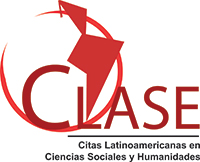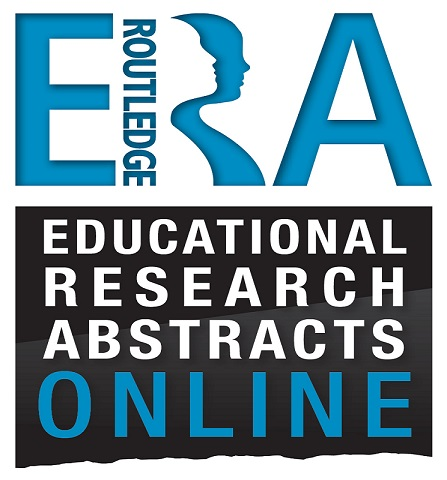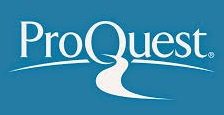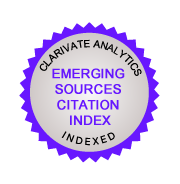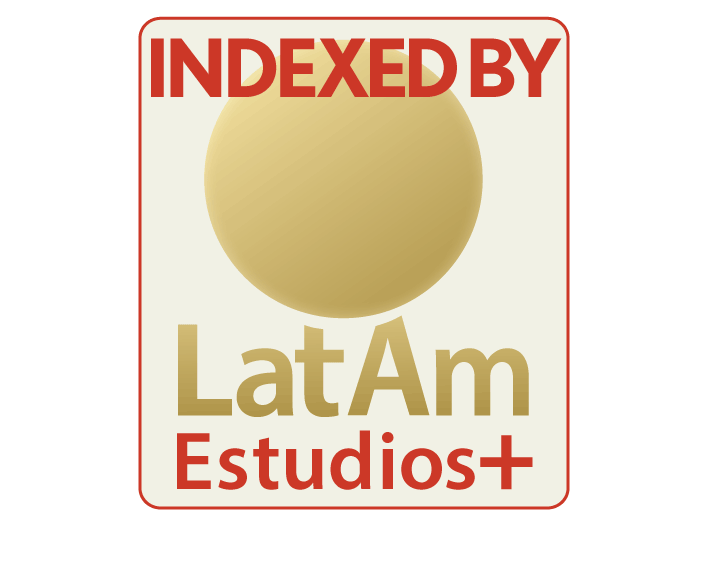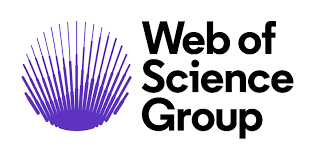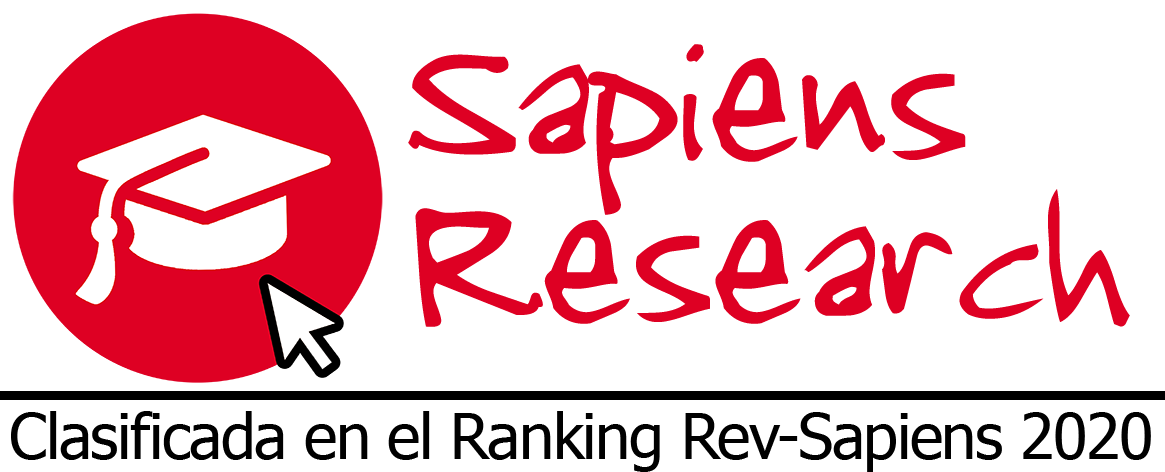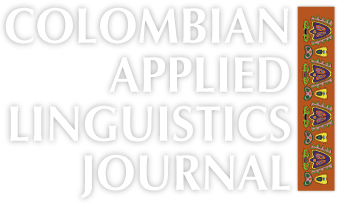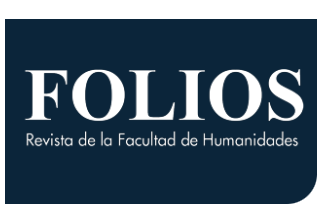
Published
Problem-Based Learning: An Experiential Strategy for English Language Teacher Education in Chile
Aprendizaje basado en problemas: una estrategia experiencial para la formación de profesores de inglés en Chile
DOI:
https://doi.org/10.15446/profile.v19n1.53310Keywords:
English teacher education, learning strategies, problem-based learning (en)aprendizaje basado en problemas, estrategias de aprendizaje, formación de profesores de inglés (es)
The Chilean education system requires English language teachers to be equipped with non-conventional teaching strategies that can foster meaningful learning and assure successful learners’ performances in diverse and complex settings. This exploratory, descriptive, research study aimed at discovering the perceptions of 54 pre-service teachers about the impact of a problem-based learning activity in the development of key competencies, including higher order thinking skills and reflective, research, knowledge transfer/integration, social, and self-management skills. Groups of participants chose a made-up, ill-structured problem which combined language teaching and socio-cultural issues, and devised holistic solutions. Findings suggest a comprehensive impact on the first four skills, but a limited impact on social and self-management skills.
https://doi.org/10.15446/profile.v19n1.53310
Problem-Based Learning: An Experiential Strategy for English Language Teacher Education in Chile
Aprendizaje basado en problemas: una estrategia experiencial para la formación de profesores de inglés en Chile
Diego Muñoz Campos*
Universidad Católica del Maule, Talca, Chile
This article was received on October 1, 2015, and accepted on October 18, 2016.
How to cite this article (APA 6th ed.):
Muñoz Campos, D. (2017). Problem-based learning: An experiential strategy for English language teacher education in Chile. PROFILE Issues in Teachers’ Professional Development, 19(1), 29-40. https://doi.org/10.15446/profile.v19n1.53310.
This is an Open Access article distributed under the terms of the Creative Commons license Attribution-NonCommercial-NoDerivatives 4.0 International License. Consultation is possible at http://creativecommons.org/licenses/by-nc-nd/4.0/.
The Chilean education system requires English language teachers to be equipped with non-conventional teaching strategies that can foster meaningful learning and assure successful learners’ performances in diverse and complex settings. This exploratory, descriptive, research study aimed at discovering the perceptions of 54 pre-service teachers about the impact of a problem-based learning activity in the development of key competencies, including higher order thinking skills and reflective, research, knowledge transfer/integration, social, and self-management skills. Groups of participants chose a made-up, ill-structured problem which combined language teaching and socio-cultural issues, and devised holistic solutions. Findings suggest a comprehensive impact on the first four skills, but a limited impact on social and self-management skills.
Key words: English teacher education, learning strategies, problem-based learning.
El sistema educacional chileno requiere docentes de inglés capaces de aplicar estrategias didácticas no-convencionales que promuevan aprendizajes significativos y aseguren desempeños exitosos en contextos diversos y complejos. El objetivo de este estudio exploratorio-descriptivo fue conocer las percepciones de 54 docentes en formación acerca del impacto de una actividad de aprendizaje basado en problemas sobre el desarrollo de competencias fundamentales, como habilidades de pensamiento superior y la capacidad para reflexionar, investigar, transferir e integrar saberes, interactuar socialmente y ejercer auto-control. Grupos de participantes seleccionaron un problema complejo, inventado, que integraba aspectos lingüístico-didácticos y socio-culturales, y plantearon soluciones holísticas. Los resultados sugieren un impacto mayor sobre las primeras cuatro habilidades, pero revelan un impacto limitado sobre las habilidades sociales y de auto-control.
Palabras clave: aprendizaje basado en problemas, estrategias de aprendizaje, formación de profesores de inglés.
Introduction
The current educational context within which initial English teacher education occurs in Chile poses curricular demands aimed at four major areas and their corresponding goals. Two major issues in many teacher training programs are the development of advanced linguistic and communications competencies in English (C1 level in the Common European Framework of Reference for Languages), and the acquisition and development of teaching knowledge and skills; in both cases, third-party certification is involved. The third area in the training of prospective teachers of English (which is explicitly stated in many graduate profiles) is the capacity to reflect and think critically about their teaching practices. Actually, most graduate profiles fit within the notion of “reflective practitioner” as characterized by Kumaravadivelu (2003). The fourth area of training is directly related to the previous one and points to the ability to design and carry out English as a foreign language (EFL) classroom/action research projects, as well as broader-scope educational research work.
Based on practicum classes observations carried out by teacher trainers/supervisors over a three-year period, pre-service English language teachers from a regional university have evidenced weaknesses in their capacity to integrate theoretical teaching knowledge into their teaching practices. They have also shown a limited capacity to reflect upon them critically and systematically, in such a way that this could help them to cope with the complexities of diverse school settings.
Practicum observation notes taken over time reveal that both pre-service and in-service English language teachers feel overwhelmed by public schools’ challenging contexts in which learners’ violence, misbehavior, demotivation, lack of interest in schooling, poor academic performance, and dropping out of school are not uncommon (Cid, Díaz, Pérez, Torruella, & Valderrama, 2008; Román, 2009). Dealing with school sexual, religious, and ethnic and cultural diversity issues for which they are not necessarily prepared adds an additional burden to their teaching responsibilities (personal communication with in-service teachers), which also impacts on the level of achievement of English language learning in both primary and secondary school children. In a much broader context, although the Chilean government set a pathway to make Chile a bilingual country by the year 2030 (Gobierno de Chile, 2014), the actual school learners’ performance on English language standardized tests has not been very promising; according to the 2014 SIMCE1 results for 3rd year high school students (Agencia de Calidad de la Educación, 2014), only 25% reached the “Certified” category in English, which means that they are able to understand short simple texts and daily life conversations. Also, according to the 2015 English Proficiency Index, out of 70 countries surveyed with regard to English language skills, Chile ranks 36, still at a low proficiency level (English First, 2015). All of this has occurred for over four decades within the context of neoliberal socio-economic policies and a consumer-driven education system implemented in the country (Donoso Díaz, 2005). The focus on content-based learning and delivery of globalized, standardized knowledge and testing has translated neither into more disciplined and motivated learners, nor into more critical-reflective educational practitioners, which might contribute to assuring effective teaching and learning.
The question then becomes: What learning strategies can best contribute to achieving the curricular goals of pre-service teachers, as well as prepare them to better manage current challenging and demanding school settings. Problem-based learning (PBL), an experiential learning strategy (Kolb, 1984) which fosters problem-solving skills, reflecting and thinking critically, controlling and directing learners’ own learning, working collaboratively, creating learner-based learning strategies, and strengthening their cognitive processes seems to be an adequate alternative to assess their accomplishments.
In this context, the purpose of this exploratory pilot study was to discover the perceptions of a particular group of pre-service teachers about PBL’s contributions to their preparation as English language teachers, and identify evidence of the impact this learning strategy has on their reflective learning processes. The research questions posed were: (a) How do pre-service teachers experience PBL? (b) How does PBL enable reflective learning processes in pre-service teachers? A questionnaire and a rubric were used respectively to try to find answers to these questions.
This exploratory PBL study was carried out in the initial English Language Teacher Education (ELTE) program at a regional university in Chile during the first semesters of 2010 and 2012. The contingent situation generated as a result of the 2011 national students’ demonstrations against market-driven education and in favor of free education, prevented the implementation of the PBL activity during that particular academic year. Many universities, including the one where this study was carried out, were taken over by the students which translated into a prolonged period of no-classes and a delay and shortening of the academic year. Both teaching and assessment procedures had to be modified and accommodated to suit the new reality and be able to finish the academic work properly within the new time frame, which extended till summer in many cases. In short, the 2011 academic year was extremely erratic due to the student-led social unrest. At a macro level, this EFL teacher training program has been in place since 2007 and was designed in accordance with the main tenets of competency-based education, in line with institutional curricular decisions. So far, a little over one hundred teachers have graduated from the program.
Literature Review
Experiential Learning in Second/Foreign Language Teacher Education
Second or foreign language teacher education has not been alien to the experiential learning approach. Fleming and Walter (2004) link learner autonomy through experiential learning and task design to foster professionalism. Knutson (2003) examines the implications of this learning approach for second language acquisition, and points out some problems of the experiential curriculum and proposes some solutions. Walter (1998) discusses a TESOL program in Thailand and suggests three strategies for English language teaching to speakers of other languages: (a) learners should discard textbooks and be allowed to contribute contents for the second language learning, (b) learning should abandon the classroom and move to the general community, (c) teacher’s role should be reduced and learners should be encouraged to learn how to learn on their own and for the purposes they deem appropriate.
Problem-Based Learning
PBL, an experiential learning strategy, has long been recognized as a useful tool to foster the development of a variety of skills in various academic fields and programs (Eyler, 2009; Kohonen, 1992, 2001; Major & Palmer, 2001; Wharton & Parry, 2003). Originally applied to the medical sciences, the characteristics of the approach are, as suggested by Walton and Mathews (1989), tackling realistic problems in chosen fields, applying prior knowledge, practice of logical, analytical, and scientific approaches to problems, application of knowledge in a mixed, interrelated way, and knowledge construction as a result of sharing and exchanging information.
Norman and Schmidt (1992) state that PBL can be characterized as “a collection of carefully constructed problems [which is] presented to small groups of students,” whose task is to “discuss these problems and produce tentative explanations for the phenomena” being described (p. 557). They identify some PBL objectives as including fostering problem-solving skills, enhancing self-directed learning and intrinsic interest in subject matter, as well as advantages such as memory improvement through the activation of prior knowledge, knowledge retention and transfer.
Major and Palmer (2001) have characterized PBL as
an educational approach in which complex problems serve as the context and the stimulus for learning In PBL classes, students work in teams to solve one or more complex and compelling “real world” problems. They develop skills in collecting, evaluating, and synthesizing resources as they first define and then propose a solution to a multifaceted problem. (p. 5)
In a more recent study, Temel (2014) reports PBL increasing perceptions of problem-solving ability, but a “relative lack of effectiveness in increasing critical thinking dispositions of pre-service teachers” (p. 15). With regard to the use of this learning approach in teacher education, Barron, Preston-Sabin, and Kennedy (2013) report a pilot PBL experience with pre-service teachers which was highly rated (out of 40 student-teachers, on a 1-5 scale with 5 being excellent, 11 pre-service teachers (27.5%) rated it 5, and 24 (60%) rated it 4). Paineán Bustamante, Aliaga Prieto, and Torres Torres (2012) report on a decade long PBL curriculum implementation and assessment experience in initial teacher training at Universidad de Atacama (UDA) in Chile, and found that pre-service teachers identified the following four major skills developed by performing PBL activities throughout their training period: (a) research skills based on the scientific method, (b) team work skills, (c) critical thinking skills, and (d) skills to practice tolerance. Labra et al. (2011), on the other hand, in a study also carried out at UDA, give an account of the positive reception of two PBL modules of the new curriculum by prospective teachers when they dealt with ill-structured, discipline-based problems. The main objectives of the new curriculum, which began to be implemented in the year 2000, aimed at developing skills related to autonomous learning, critical thinking, interpersonal communication, and information processing.
Overall, the literature reviewed highlights PBL as an effective learning tool in the context of teacher education, in general, and for second language acquisition in particular; however, it should be pointed out that studies on PBL in the context of English language teacher preparation in Latin America are limited.
Nevertheless, the problem-based approach to learning is not free of contradictions and tensions. Hung, Harpole Bailey, and Jonassen (2003) have discussed some of the tensions involving PBL including the depth versus the breadth of the curriculum, higher-order thinking versus factual knowledge acquisition, long-term effects versus immediate learning outcomes, and students’ initial discomfort versus their positive attitudes. Naturally, some of these tensions became evident throughout this PBL pilot experience carried out in an English teacher training program in Chile.
Method
Context of the Study
During a regular class of the module called Teorías de la Adquisición de una Lengua Extranjera (Theories of Second/Foreign Language Acquisition)—one of the modules in the curriculum of the ELTE program at a regional university in Chile—pre-service teachers were instructed about the PBL approach during two 90-minute sessions; three- and four-member groups were formed based on their kinship and previous group work experience. Sixteen groups were formed in 2010 and the participants were distributed as follows: 9 four-member groups, 6 three-member groups, and 1 two-member group. In 2012, 15 groups were formed, and participant distribution was as follows: 4 four-member groups, 8 three-member groups, and 3 two-member groups. They were presented with a list of 16 made-up problems which integrated socio-cultural and English language teaching-learning issues within a school context which was also fictitious. Although the problems were not real, they were made up in such a way as to make them look real.
Each group chose a problem to be solved. General instructions provided by the teacher responsible for the module (the mediator) included aspects which had to do with group work and group organization, tasks distribution, group discussions, and progress reports. The work procedure included group discussions in and outside class, with and without a mediator, in order to provide timely and contingent support based on the “scaffolding notion” (Hammond & Gibbons, 2001); on average the various groups met three times outside class without the mediator (Wilkerson & Feletti, 1989), and provided minutes of their meetings as evidence of their work during group oral presentations at the end of the semester. According to the problematics involved in the problem chosen by each group, resources used by the prospective teachers included bibliographic searches and interviews of key informants including experts (psychologists), parents, guardians, school teachers, school children, and teenagers, who provided relevant information for the problem to be solved.
Participants
Two third-year cohorts of students in the ELTE program were exposed to the same PBL experience during 2010 and 2012. All of the participants were formally registered as regular students in the Theories of Second/Foreign Language Acquisition module, which is part of the English Pedagogy curriculum and is taught during the fifth semester of the program. In both cases, the weight this PBL activity carried was 20% of the final mark in the module. The number of subjects who were surveyed was 29 in 2010 and 25 in 2012.
Participants were exposed to made-up, ill-structured problems (those that do not yield a particular solution or answer) which somehow replicated real local school contexts and involved various socio-cultural, educational, and pedagogical issues prospective teachers might face once they join the job market. Particular issues included racial, religious, and sexual discrimination; socio-economic background; types of school administration (public, subsidized); disruptive behavior; lack of motivation/interest in second language acquisition; meaningful learning; critical thinking skills; use of teaching materials, and teacher’s role. Sample problems actually used in the study are included in the Appendix.
Sixteen and fifteen groups (2010 and 2012 cohorts respectively) of pre-service teachers chose a made-up problem from a 16-problem list and worked on finding solutions to each issue of the problem during a 5-week period. They searched for relevant literature, interviewed pertinent informants, had discussion meetings, met with the mediator, and presented an oral report on their work and proposed solutions.
Data Collection
The data collection for this study was carried out utilizing two instruments. The first was a self-administered, Likert scale, 12-statement questionnaire aimed at obtaining pre-service teachers’ perceptions on the contribution of this PBL experience to the development of their cognitive skills, and to their capacity to reflect and think critically, integrate diverse types of knowledge, develop personality and social skills, control their learning, search for and process information, devise solutions to a made-up school problem, and assess the overall contribution of the experience to initial teacher education and personal growth. The questionnaire included the following assessment criteria: (a) Totally Agree, (b) Agree, (c) Neither Agree/Nor Disagree, (d) Disagree, (e) Totally Disagree. The second instrument was observations of group performances in order to obtain evidence of the level of achievement of the skills outlined above; the various groups accounted for their work in a group presentation given to their classmates, organized according to previously socialized rubric criteria. Each group member presented one or two subareas of the problem selected earlier by addressing fundamental aspects of it. Evidence of group organization and internal procedures implemented throughout the experience was provided through minutes of group meetings, key informants’ interview transcripts, and relevant literature consulted.
Table 1 shows the PBL rubric used to assess group work of both cohorts (2010 and 2012), which included five criteria, namely, (a) organizational evidence (minutes of group meetings and interview transcripts), (b) technical literature/information utilized, (c) context information (sources consulted), (d) problem solutions, (e) quality of the arguments and use of theoretical and context information to support proposed problem solutions. It also contains the corresponding descriptors for the criteria on a 4-point scale.
The criteria included in the rubric were decided based on skills PBL initiatives are supposed to develop/strengthen, such as collaborative work, autonomous learning, higher order thinking skills (analyzing, synthesizing/evaluating, creating), and capacity to integrate background, theoretical and practical knowledge to back up arguments and problem solutions.
Procedure and Data Analysis
The individual perception questionnaire was administered to participants by the course mediator who informed them about the objectives of the study. They were also informed about the voluntary, anonymous, and confidential nature of the study and they all agreed to be part of it. Thirty minutes was the allotted time to answer the questionnaire. Descriptive statistics (descriptors, frequencies, and percentages) was utilized for data analysis, supported by the SPSS 18.0 statistics software.
Results
Pre-Service Teachers’ Perception of the PBL Experience
After this experiential learning experience, pre-service teachers answered the perception survey which included 12 statements about this PBL pilot experience.They had to judge the experience based on the following perception criteria: (a) Totally Agree, (b) Agree, (c) Neither Agree/Nor Disagree, (d) Disagree, (e) Totally Disagree.
Table 2 shows the criteria and percentages corresponding to learners’ perception levels of both 2010 and 2012 cohorts. For tabulation purposes, the five criteria were grouped together in only three criteria: (a) and (b) together, (c), and (d) and (e) together. The percentages were rounded up and were calculated through the use of the SPSS data analysis software.
Overall, there was a favorable perception of the pre-service teachers who participated in this PBL experience with regard to most of the criteria; most of the items included in the criteria have percentages that range from 80% to 97% in the Totally Agree/Agree category in both cohorts, with item 11 getting 100% in this category in the 2012 cohort, as Table 2 shows. Perceptions regarding PBL contribution to the development of their cognitive skills (Item 1) rated very high with both cohorts, 90% and 88% respectively. Other items also rated very high; for example, their reflective capacity (Item 2), at 93% in cohort 2010 and 96% in cohort 2012; their critical reflective capacity (Item 3), at 93% in cohort 2010 and 92% in cohort 2012; their information searching, analytical, and synthesizing skills (Item 9) at 79% in cohort 2010 and 92% in cohort 2012, as well as the contribution to the strengthening of their initial teacher education program (Item 11) at 90% in cohort 2010 and 100% in cohort 2012, should be highlighted. On the other hand, the percentage regarding perceptions of the PBL experience contribution to the development of participants’ personality (Item 8) is relatively low, at 31% in cohort 2010 and 48% in cohort 2012.
Solutions to the Problems
In general, solutions to the specific problem dealt with by each PBL group were characterized by the following: (a) all sub-areas integrated to the corresponding problem (psychology, sociology, second language acquisition, culture studies associated with recognition of diversity in schools, and others) were addressed during the group presentations; (b) the efforts made to combine both theoretical and experiential knowledge acquired through interactions with key informants; (c) sub-areas associated with socio-cultural issues were highlighted by most groups in the proposed solutions to the problem; (d) the theoretical/practical knowledge related to second language acquisition was highlighted only by some groups.
Marks
The previously publicized rubric (Table 1) among group members was utilized to figure out the group mark assigned by the only assessor involved in the PBL activity, the course mediator. As a way to complement previous information, the PBL exploratory study marks obtained by the students are presented here. The average group mark for this learning activity was 5.5 and 5.7 for the 2010 and 2012 cohorts respectively, which indicates an increase in the skills that were assessed, such as research skills and the capacity to generate holistic and feasible solutions to the problems (the Chilean education assessment system is based on a 1-7 decimal points scale, four (4.0) being the minimum passing mark).
Discussion
When examining the responses to the survey in light of the research question “How do pre-service teachers experience problem-based learning?” they reveal a highly positive perception of this learning strategy. More than two thirds of participants estimated that PBL contributes to developing academic work related skills. For the first three items (PBL contribution to cognitive development, reflective capacity, and critical reflection) percentages are 90%, 93%, and 93% for the 2010 cohort; and 88%, 96%, and 92% for the 2012 cohort. Items 9, 11, and 12 also rank very high. For Item 9 (PBL contribution to the development of skills to search for, analyze and with which to synthesize information), 79% for the 2010 cohort and 92% for the 2012 cohort respectively agree with the corresponding statement. On the other hand, most participants agree with the statement for Item 11, (PBL contribution to strengthening initial teacher education), 90% for the 2010 cohort and 100% for the 2012 cohort; and for Item 12 (PBL contribution to personal growth), 86% for the 2010 cohort and 84% for the 2012 cohort agree with the corresponding statement, which contradicts results for Item 8 (PBL contribution to personality development) with a low 31% and 48% respectively. It is worth noting here the significant difference between both cohorts in the perception of Items 4 and 9 which have to do with developing general and specific research skills; even though more than two thirds of participants from both cohorts agree with the corresponding statements, there is a 9-point difference between cohorts for Item 4 (79% and 88% respectively) and a 12-point difference for Item 9 (79% and 92% respectively).
The 22-point difference between both cohorts in Item 5 (PBL contribution to the integration of various types of knowledge), 62% and 84% respectively, also stands out. The reason for it might be that the 2010 cohort experienced less learning opportunities in which they were required to relate and integrate knowledge from various sources before they experienced PBL. The made-up problems did include a diversity of sub-areas and required that the pre-service teachers interview key informants having different experiences and knowledge, such as in-service teachers, school students, parents, psychologists, school counselors, and teacher trainers. They were also required to consult bibliographical sources relevant to the sub-areas covered in the problem dealt with. The 14-point difference between both cohorts regarding Item 7 (PBL contribution to controlling one’s learning), 66% and 80% respectively, is also relevant. This might have to do with the fact that as the teacher training program grew older, more emphasis was put on self-study and use of available resources. In Item 8 (PBL contribution to developing personality) perceptions show the widest spread, with one fifth of the participants, 21% and 20% respectively, declaring disagreement with the statement. Agreement with the statement reached less than 50% in both cohorts, 31% and 48% respectively.
Regarding similarity of the made-up problems with real school problems (Item 10), more than two thirds of participants from both cohorts estimated that they were very similar to “real problems” (97% and 84% respectively), which probably reflects the PBL potential to confront school complexities issues albeit in an academic and rather than an artificial setting such as an initial teacher education program.
With regard to the research question, “How does PBL enable reflective learning processes?”, evidence gathered throughout the assessment of group oral presentations by means of a 5-criteria rubric (Table 1) show that this learning strategy does contribute significantly to developing analytical and reflective skills; this was mainly demonstrated through both the relation and integration of knowledge when presenting arguments and solutions to the problem. The average group marks obtained by both cohorts (on a 1-7 scale, 5.5 for the 2010 cohort, and 5.7 for the 2012 cohort) attest to the perceived reflective learning through the implementation of PBL in teacher education.
Conclusions
The implementation of the experiential learning strategy known as PBL as a pilot experience in one of the curricular modules of the English Pedagogy program at a regional university in Chile, during two academic years and with two different cohorts, had a positive impact on several development areas of this initial teacher preparation program. Findings of this pilot study coincide with what relevant literature claims with regard to PBL experiences fostering various skills in a number of areas. Overall, PBL was perceived very positively by participants from both cohorts; close to or more than two thirds of them agree that PBL contributes to their cognitive development, reflective/critical and knowledge integration capacity, learning self-control, and to their research and social skills development. Nevertheless, less than half of the participants estimated that PBL contributed to the development of their personality, even though most of them considered that it does foster personal growth and highly contributes to initial teacher education. Findings also reveal that reflective learning processes are enabled and strengthened by implementing PBL activities in English language teacher education as they challenge pre-service teachers to search for, sort out, analyze, and synthesize information, as well as relate various types of knowledge to complex school settings.
Application of what is learned (Pfeiffer & Jones’s model, 1983) and dissemination or knowledge transfer (Koernderman’s model, 2000) became evident in the proposed solutions to each problem during each group’s oral presentation, which revealed integration of both theoretical and practical knowledge acquired from various sources consulted. In this particular case, even though language skills were not formally assessed, reading technical literature, watching video clips in English, and preparing audiovisuals did have an impact on language skills development, as observed during oral presentations.
Some limitations of this study should be pointed out, though. First of all, time constraints prevented more reflection and in depth discussions of problem solutions, relevant related issues, as well as teaching implications of the experience. Secondly, the need to structure the processing of information in a more systematic way became evident; this might favor knowledge integration aiming at working out generalizable solutions linked to “what tends to occur” in the real world. Thirdly, the importance of participants becoming aware of a number of issues, including (a) that this learning strategy (PBL) does transfer the control of their learning to themselves, (b) that this learning strategy fosters their overall professional development by linking classroom acquired knowledge with problems in real school contexts, (c) that this learning experience is another opportunity to improve and demonstrate their communicative language skills in English in formal training contexts, and (d) that eventually they might want to consider implementing PBL activities in their schools.
Finally, it should be pointed out that any initial English teacher training program may greatly benefit from including experiential learning strategies such as problem-based learning in their class planning. Findings suggest that the benefits should increase where PBL is systematically integrated into the curriculum. Naturally, more experiences, probably on a larger scale, are required, aiming to adequately meet the wide diversity of demands in current educational contexts.
1Sistema de Medición de la Calidad de la Educación (Education Quality Measurement System).
References
Agencia de Calidad de la Educación. (2014). Entrega de resultados de aprendizaje 2014: SIMCE e indicadores de desarrollo personal y social [Report on learning outcomes 2014: SIMCE and personal and social development indicators]. Retrieved from http://archivos.agenciaeducacion.cl/resultados-2014/Presentacion_Entrega_Resultados_2014_8_II_III.pdf.
Barron, L., Preston-Sabin, J., & Kennedy, D. (2013). Problem-based learning for the pre-service teacher. SRATE Journal, 22(2), 39-45.
Cid, P., Díaz, A., Pérez, M. V., Torruella, M., & Valderrama, M. (2008). Agresión y violencia en la escuela como factor de riesgo del aprendizaje escolar [Aggression and violence in schools as a risk factor of school education]. Ciencia y Enfermería, 14(2), 21-30. https://doi.org/10.4067/s0717-95532008000200004.
Donoso Díaz, S. (2005). Reforma y política educacional en Chile: 1990-2004: El neoliberalismo en crisis [Reform and educational policies in Chile 1990-2004: The neo-liberalism crisis]. Estudios Pedagógicos, 31(1), 113-135. https://doi.org/10.4067/s0718-07052005000100007.
English First. (2015). English proficiency index 2015. Retrieved from http://www.ef.co.nz/epi/regions/latin-america/chile/.
Eyler, J. (2009). The power of experiential education. Liberal Education, 95(4), 24-31.
Fleming, D., & Walter, P. (2004). Linking teacher professionalism and learner autonomy through experiential learning and task design [Special issue]. TESL Canada Journal, 4, 58-72. https://doi.org/10.18806/tesl.v0i0.1040.
Gobierno de Chile. (2014). Estrategia nacional de inglés 2014-2030 [Chile’s National English Strategy 2014-2030]. Retrieved from http://www.economia.gob.cl/wp-content/uploads/2014/03/140307-Presentacion-CS-lanzamiento-ENI-v3.pdf.
Hammond, J., & Gibbons, P. (2001). What is scaffolding? In J. Hammond (Ed.), Scaffolding: Teaching and learning in language and literacy education (pp. 1-14). Marrickville, AU: PETA.
Hung, W., Harpole Bailey, J., & Jonassen, D. H. (2003). Exploring the tensions of problem-based learning: Insights from research [Special issue]. New Directions for Teaching and Learning, 95, 13-23. https://doi.org/10.1002/tl.108.
Knutson, S. (2003). Experiential learning in second-language classrooms. TESL Canada Journal, 20(2), 52-64. https://doi.org/10.18806/tesl.v20i2.948.
Koernderman, M. (2000). Monitor training manual (Unpublished document). Sherbrooke, QC: English Language Summer School, University of Sherbrooke.
Kohonen, V. (1992). Experiential language learning: Second language learning as cooperative learner education. In D. Nunan (Ed.), Collaborative language learning and teaching (pp. 14-39). Cambridge, UK: Cambridge University Press.
Kohonen, V. (2001). Towards experiential foreign language education. In V. Kohonen, R. Jaatinen, P. Kaikkonen, & J. Lehtovaara (Eds.), Experiential learning in foreign language education (pp. 8-60). Essex, UK: Pearson Education.
Kolb, D. A. (1984). Experiential learning: Experience as the source of learning and development. Upper Saddle River, NJ: Prentice Hall.
Kumaravadivelu, B. (2003). Beyond methods: Macrostrategies for language teaching. New Have, CT: Yale University Press.
Labra, P., Kokaly, M. E., Iturra, C., Concha, A., Sasso, P., & Vergara, M. I. (2011). El enfoque ABP en la formación inicial docente de la Universidad de Atacama: el impacto en el quehacer docente [The PBL approach in the initial education at the Universidad de Atacama: The impact on the teaching practice]. Estudios Pedagógicos, 37(1), 167-185. https://doi.org/10.4067/S0718-07052011000100009.
Major, C. H., & Palmer, B. (2001). Assessing the effectiveness of problem-based learning in higher education: Lessons from the literature. Academic Exchange Quarterly, 5(1).
Norman, G. R., & Schmidt, H. G. (1992). The psychological basis of problem-based learning: A review of the evidence. Academic Medicine, 67(9), 557-565. https://doi.org/10.1097/00001888-199209000-00002.
Paineán Bustamante, O., Aliaga Prieto, V., & Torres Torres, T. (2012). Aprendizaje basado en problemas: evaluación de una propuesta curricular para la formación inicial docente [Problem based learning: Assessment of a PBL curricular proposal for pre-service teacher training]. Estudios Pedagógicos, 38(1), 161-180. https://doi.org/10.4067/S0718-07052012000100010.
Pfeiffer, J. W., & Jones, J. E. (1983). Reference guide to handbooks and annuals. San Diego, CA: University Associates.
Román, M. (2009). El fracaso escolar de los jóvenes en la enseñanza media: ¿Quiénes y por qué abandonan definitivamente el liceo en Chile? [School failure of students at middle school: Who and why do they drop out of school in Chile?]. REICE, 7(4), 95-119. Retrieved from https://dialnet.unirioja.es/servlet/articulo?codigo=3190852.
Temel, S. (2014). The effects of problem-based learning on pre-service teachers’ critical thinking dispositions and perceptions of problem-solving ability. South African Journal of Education, 34(1), 1-20. https://doi.org/10.15700/201412120936.
Walter, P. (1998). Experiential learning in language education: Suggestions for TESOL practice. Prospect: An Australian Journal of Teaching, 13(1), 53-67.
Walton, H. J., & Mathews, M. B. (1989). Essentials of problem-based learning. Medical Education, 23(6), 542-558. https://doi.org/10.1111/j.1365-2923.1989.tb01581.x.
Wharton, R., & Parry, L. E. (2003). The good, the bad, and the ugly: Using experiential learning in the classroom. Journal of Scholarship of Teaching and Learning, 3(3), 56-68.
Wilkerson, L., & Feletti, G. (1989). Problem-based learning: One approach to increasing student participation. New Directions for Teaching and Learning, 37, 51-60. https://doi.org/10.1002/tl.37219893707.
About the Author
Diego Muñoz Campos holds a PhD from the University of Minnesota (USA). He has been a teacher of English for over 10 years and has presented at various events in Chile. His research interests include second language acquisition, alternative approaches and methodologies, and discourse analysis.
Problem 1
Two 16 year old high school students with an ethnic background have strong feelings about their ethnic identity and seriously question the fact that they have to study English at school. In fact, they have disruptive behavior, and challenge their teacher’s authority. You want them to become interested in learning English but you cannot avoid dealing with their negative attitude and disruptive behavior. Besides, you want the whole class to develop their cultural awareness through your English language teaching. What can you do?
Problem 2
Fifteen year old students from a co-ed public school come from different social backgrounds and are keen on studying English using traditional textbooks. They enjoy celebrating English culture festivities such as Halloween. You want them to develop their speaking skills as well as their critical thinking skills, but they think the material is too difficult; they are unable to talk in English because they get anxious and are afraid of making mistakes. Some of the students have questioned the adoption of such festivities in Chile. What can you do?
Problem 3
Four non-Catholic 3rd year high school students attend public school. They are usually isolated from the rest of the class and some students make fun of them. Their English teacher has also exhibited some discriminatory language and attitudes towards them. They have asked the school authorities to allow them to get together and talk about their religious beliefs while in school, but their request has been ignored. You want your teaching to be meaningful to your students and the goals you have set for the class include developing their listening/speaking skills, as well as their critical thinking skills. What can you do?
Problem 4
Senior students (4th year high school students) in a large class come from middle class families and attend a middle class subsidized school. Some of them have shown sexist attitudes and used sexist language towards two male students who have shown gay/lesbian behavior. Their English teacher has also exhibited discriminatory language and behavior. You would like your students to deal with this issue while developing their English speaking skills. What can you do?
Problem 5
You teach English to 8th graders in a rural school run by the local Municipality. In general, students are not really motivated to learn English. They get Mineduc (Ministry of Education) English textbooks but their English teacher does not use them because “they are too difficult for the children.” The students make fun of a classmate with a physical disability but who likes to speak English. You want to use those textbooks and make your students think critically about their learning and discriminatory attitudes. What can you do?
References
Agencia de Calidad de la Educación. (2014). Entrega de resultados de aprendizaje 2014: SIMCE e indicadores de desarrollo personal y social [Report on learning outcomes 2014: SIMCE and personal and social development indicators]. Retrieved from http://archivos.agenciaeducacion.cl/resultados-2014/Presentacion_Entrega_Resultados_2014_8_II_III.pdf.
Barron, L., Preston-Sabin, J., & Kennedy, D. (2013). Problem-based learning for the pre-service teacher. SRATE Journal, 22(2), 39-45.
Cid, P., Díaz, A., Pérez, M. V., Torruella, M., & Valderrama, M. (2008). Agresión y violencia en la escuela como factor de riesgo del aprendizaje escolar [Aggression and violence in schools as a risk factor of school education]. Ciencia y Enfermería, 14(2), 21-30. http://dx.doi.org/10.4067/s0717-95532008000200004.
Donoso Díaz, S. (2005). Reforma y política educacional en Chile: 1990-2004: El neoliberalismo en crisis [Reform and educational policies in Chile 1990-2004: The neo-liberalism crisis]. Estudios Pedagógicos, 31(1), 113-135. http://dx.doi.org/10.4067/s0718-07052005000100007.
English First. (2015). English proficiency index 2015. Retrieved from http://www.ef.co.nz/epi/regions/latin-america/chile/.
Eyler, J. (2009). The power of experiential education. Liberal Education, 95(4), 24-31.
Fleming, D., & Walter, P. (2004). Linking teacher professionalism and learner autonomy through experiential learning and task design [Special issue]. TESL Canada Journal, 4, 58-72. http://dx.doi.org/10.18806/tesl.v0i0.1040.
Gobierno de Chile. (2014). Estrategia nacional de inglés 2014-2030 [Chile’s National English Strategy 2014-2030]. Retrieved from http://www.economia.gob.cl/wp-content/uploads/2014/03/140307-Presentacion-CS-lanzamiento-ENI-v3.pdf.
Hammond, J., & Gibbons, P. (2001). What is scaffolding? In J. Hammond (Ed.), Scaffolding: Teaching and learning in language and literacy education (pp. 1-14). Marrickville, AU: PETA.
Hung, W., Harpole Bailey, J., & Jonassen, D. H. (2003). Exploring the tensions of problem-based learning: Insights from research [Special issue]. New Directions for Teaching and Learning, 95, 13-23. http://dx.doi.org/10.1002/tl.108.
Knutson, S. (2003). Experiential learning in second-language classrooms. TESL Canada Journal, 20(2), 52-64. http://dx.doi.org/10.18806/tesl.v20i2.948.
Koernderman, M. (2000). Monitor training manual (Unpublished document). Sherbrooke, QC: English Language Summer School, University of Sherbrooke.
Kohonen, V. (1992). Experiential language learning: Second language learning as cooperative learner education. In D. Nunan (Ed.), Collaborative language learning and teaching (pp. 14-39). Cambridge, UK: Cambridge University Press.
Kohonen, V. (2001). Towards experiential foreign language education. In V. Kohonen, R. Jaatinen, P. Kaikkonen, & J. Lehtovaara (Eds.), Experiential learning in foreign language education (pp. 8-60). Essex, UK: Pearson Education.
Kolb, D. A. (1984). Experiential learning: Experience as the source of learning and development. Upper Saddle River, NJ: Prentice Hall.
Kumaravadivelu, B. (2003). Beyond methods: Macrostrategies for language teaching. New Have, CT: Yale University Press.
Labra, P., Kokaly, M. E., Iturra, C., Concha, A., Sasso, P., & Vergara, M. I. (2011). El enfoque ABP en la formación inicial docente de la Universidad de Atacama: el impacto en el quehacer docente [The PBL approach in the initial education at the Universidad de Atacama: The impact on the teaching practice]. Estudios Pedagógicos, 37(1), 167-185. http://dx.doi.org/10.4067/S0718-07052011000100009.
Major, C. H., & Palmer, B. (2001). Assessing the effectiveness of problem-based learning in higher education: Lessons from the literature. Academic Exchange Quarterly, 5(1).
Norman, G. R., & Schmidt, H. G. (1992). The psychological basis of problem-based learning: A review of the evidence. Academic Medicine, 67(9), 557-565. http://dx.doi.org/10.1097/00001888-199209000-00002.
Paineán Bustamante, O., Aliaga Prieto, V., & Torres Torres, T. (2012). Aprendizaje basado en problemas: evaluación de una propuesta curricular para la formación inicial docente [Problem based learning: Assessment of a PBL curricular proposal for pre-service teacher training]. Estudios Pedagógicos, 38(1), 161-180. http://dx.doi.org/10.4067/S0718-07052012000100010.
Pfeiffer, J. W., & Jones, J. E. (1983). Reference guide to handbooks and annuals. San Diego, CA: University Associates.
Román, M. (2009). El fracaso escolar de los jóvenes en la enseñanza media: ¿Quiénes y por qué abandonan definitivamente el liceo en Chile? [School failure of students at middle school: Who and why do they drop out of school in Chile?]. REICE, 7(4), 95-119. Retrieved from https://dialnet.unirioja.es/servlet/articulo?codigo=3190852.
Temel, S. (2014). The effects of problem-based learning on pre-service teachers’ critical thinking dispositions and perceptions of problem-solving ability. South African Journal of Education, 34(1), 1-20. http://dx.doi.org/10.15700/201412120936.
Walter, P. (1998). Experiential learning in language education: Suggestions for TESOL practice. Prospect: An Australian Journal of Teaching, 13(1), 53-67.
Walton, H. J., & Mathews, M. B. (1989). Essentials of problem-based learning. Medical Education, 23(6), 542-558. http://dx.doi.org/10.1111/j.1365-2923.1989.tb01581.x.
Wharton, R., & Parry, L. E. (2003). The good, the bad, and the ugly: Using experiential learning in the classroom. Journal of Scholarship of Teaching and Learning, 3(3), 56-68.
Wilkerson, L., & Feletti, G. (1989). Problem-based learning: One approach to increasing student participation. New Directions for Teaching and Learning, 37, 51-60. http://dx.doi.org/10.1002/tl.37219893707.
How to Cite
APA
ACM
ACS
ABNT
Chicago
Harvard
IEEE
MLA
Turabian
Vancouver
Download Citation
CrossRef Cited-by
1. Martha García Chamorro, Monica Rolong Gamboa, Nayibe Rosado Mendinueta. (2022). Initial Language Teacher Education: Components Identified in Research. Journal of Language and Education, 8(1), p.231. https://doi.org/10.17323/jle.2022.12466.
2. Henry Dawson, Gayle Davis, Kirstin Ross, Marie Vaganay Miller, Alastair Tomlinson. (2024). Using staged teaching and assessment approaches to facilitate inter-university collaboration and problem-based learning. Frontiers in Public Health, 12 https://doi.org/10.3389/fpubh.2024.1334729.
3. Karolina Vargas Berra. (2021). Revisión de literatura: un acercamiento al aprendizaje autónomo de las lenguas extranjeras e interculturalidad a través del ABP. Márgenes Revista de Educación de la Universidad de Málaga, 2(1), p.21. https://doi.org/10.24310/mgnmar.v2i1.9479.
4. Yue Xu. (2023). Proceedings of the 2nd International Conference on Education, Language and Art (ICELA 2022). , p.185. https://doi.org/10.2991/978-2-38476-004-6_25.
5. Eufemia Faller, Edicio Faller. (2017). Problem-Based Learning and Authentic Assessment as an Implementation of Outcomes-Based Education in the Computer Engineering Program of Ateneo de Davao University. International Journal of Quality Assurance in Engineering and Technology Education, 6(2), p.22. https://doi.org/10.4018/IJQAETE.2017070102.
6. Andrea Lizasoain, Katherina Walper, Amalia Ortiz de Zárate, Jazmín Sepúlveda, Evelyn Catripan. (2021). Relevancia de la comunicación ‘no verbal’ en el aula de ILE: ¿cómo hablan las manos en una lengua extranjera?. Colombian Applied Linguistics Journal, 23(1), p.17. https://doi.org/10.14483/22487085.15717.
7. Mauricio Véliz-Campos, Mical Polanco-Soto, Adriana Biedroń. (2020). L2 Motivational Self System, International Posture, and the Socioeconomic Factor in Efl at University Level: The Case of Chile. Psychology of Language and Communication, 24(1), p.142. https://doi.org/10.2478/plc-2020-0009.
8. Saieed Moslemi Nezhad Arani, Abbas Ali Zarei, Abdullah Sarani. (2023). Problem-based language learning: Why Aren't teachers using it?. Social Sciences & Humanities Open, 8(1), p.100668. https://doi.org/10.1016/j.ssaho.2023.100668.
Dimensions
PlumX
Article abstract page views
Downloads
License
Copyright (c) 2017 PROFILE Issues in Teachers' Professional Development

This work is licensed under a Creative Commons Attribution-NonCommercial-NoDerivatives 4.0 International License.
You are authorized to copy and redistribute the material in any medium or format as long as you give appropriate credit to the authors of the articles and to Profile: Issues in Teachers' Professional Development as original source of publication. The use of the material for commercial purposes is not allowed. If you remix, transform, or build upon the material, you may not distribute the modified material.
Authors retain the intellectual property of their manuscripts with the following restriction: first publication is granted to Profile: Issues in Teachers' Professional Development.







